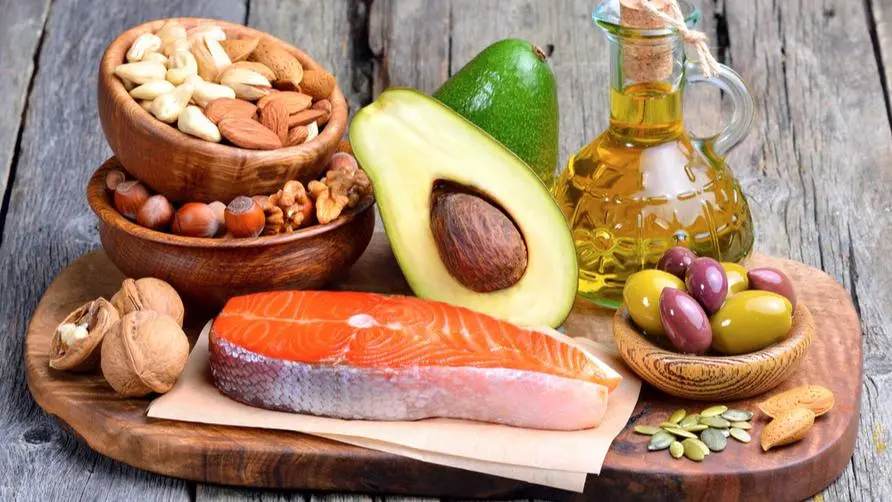Omega3 not only lowers blood pressure, but also prevents arteriosclerosis! Nutritionist: "Two kinds of fish" are the first choice for lunch dishes

Can eating more Omega3 lower blood pressure? Can it also prevent stroke and arteriosclerosis?
A recent study by the American Heart Association claimed that eating more Omega3s every day can help lower blood pressure. What are the health benefits of Omega3 fatty acids?
Wei Binhui, director of the Nutrition Department of Wanfang Hospital, said in an interview that the Omega3 family series has different fatty acids, the most commonly mentioned are “eicosapentaenoic acid” EPA and “docosahexaenoic acid” DHA, the main components of fish oil. Although the human body can also synthesize EPA and DHA from linolenic acid (ALA), the conversion efficiency is not very good and most of them still need to be obtained from the diet.
Director Wei Binhui pointed out that EPA and DHA have the effects of lowering blood lipids and anti-platelet aggregation, and can prevent thrombosis. It is helpful in preventing cardiovascular diseases such as atherosclerosis, stroke, and hypertension. In addition, Omega3 fatty acids are important components of cell membranes and have anti-inflammatory effects. They also help regulate immune responses and are helpful in relieving the pain of rheumatoid arthritis.
Are Taiwanese generally deficient in Omega 3? Nutritionist urges you to eat more mackerel and saury
Modern people have a lot of fish and meat, so why are they still not getting enough Omega3? Director Wei Binhui said that the main sources of Omega3 can be obtained from eating deep-sea fish directly to obtain EPA and DHA, or ingesting vegetable oils with higher Omega3 content, which are converted into EPA and DHA in the body. However, the efficiency of the human body in converting ALA into EPA is less than 20%. , the performance is even worse when converted to DHA. Direct intake of fish in the diet is still more recommended.
EPA and DHA are naturally found in fatty fish such as mackerel, saury, cod, salmon, tuna, and sardines. Director Wei Binhui recommends eating fish at least twice a week. For eaters, except pork and chicken , when choosing lunch main dishes, you might as well include more fish in your choices. In addition to increasing the richness of the menu, you can also supplement EPA and DHA from natural foods. If the health checkup reports that triglycerides are too high, or to prevent the risk of coronary heart disease, you need to add these foods rich in EPA and DHA to your daily diet, or additional fish oil supplements are also possible.
Director Wei Binhui said that the content of fish oil is affected by the growth environment of the fish. The content of EPA and DHA is richer in deep-sea fish than in freshwater fish and farmed fish. As for the source of vegetable oils, most of the oils extracted from plants are Omega6 fats, and linseed oil and perilla oil are rich in alpha-linolenic acid (ALA), which is another way to supplement Omega3 fatty acids, especially for vegetarians. By.
Does Excessive Omega 3 Increase the Risk of Bleeding? Pay attention to these groups
Although Omega3 fatty acids are beneficial to health and alpha-linolenic acid (ALA) is an essential fatty acid required by the body, excessive intake of fish oil may increase the risk of bleeding.
Director Wei Binhui explained that excessive or insufficient intake of nutrients will affect physical health, and there are recommended safe intake amounts. For example: EPA can inhibit platelet aggregation, reduce thrombosis, and reduce the risk of cardiovascular disease, but excessive intake may increase the risk of bleeding; therefore, it is harmful to certain parts of the body. For risk cases such as those with abnormal coagulation function, pregnant women who are taking anticoagulants, preparing for surgery, or preparing to give birth, it is not recommended to supplement large amounts of fish oil at specific stages of life to avoid risks caused by prolonged coagulation time.
Director Wei Binhui said that past research reports pointed out that supplementing more than 3 grams of Omega3 (EPA+DHA) per day may increase the risk of bleeding. In addition, children and adolescents may tolerate different dose risks than adults. It is recommended to eat a balanced diet on weekdays and supplement EPA+DHA from fatty fish. If you need nutritional supplements, you should consult a nutrition clinic.
However, Director Wei Binhui reminded that Taiwanese people generally do not consume enough Omega3. Those who eat out for three meals are recommended to choose more fish to supplement enough Omega3 fatty acids. If you want to choose a fish oil supplement, you should pay attention to the purity of the fish oil. You can first check the nutrition label to compare the purity of the fish oil content in 1 gram of capsules, rather than simply calculating the nutritional value based on the number of capsules or price.
Further reading:
“Omega-3” protects cardiovascular and lowers blood pressure? How many servings a day is enough?





